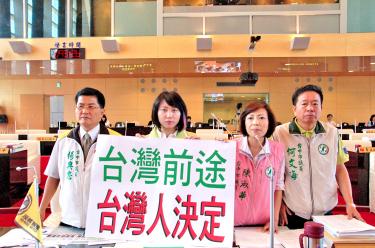During his visit to Shanghai last week, Greater Tainan Mayor William Lai (賴清德) broke out of the constraints imposed by China on its relations with Taiwan by openly talking about Taiwanese independence and the 1989 Tiananmen Square student movement. Lai dared to do so because he adheres to Taiwan-centric values and has always been concerned about human rights issues.
President Ma Ying-jeou (馬英九) has done many things to sell the nation out, leading to the outbreak of the student-led Sunflower protest movement. As young people in Taiwan take matters into their own hands and come forward to salvage the nation’s prospects, Lai has had the courage to seize the opportunity by speaking out in China, confident that there is a strong current of public opinion to back him up.












